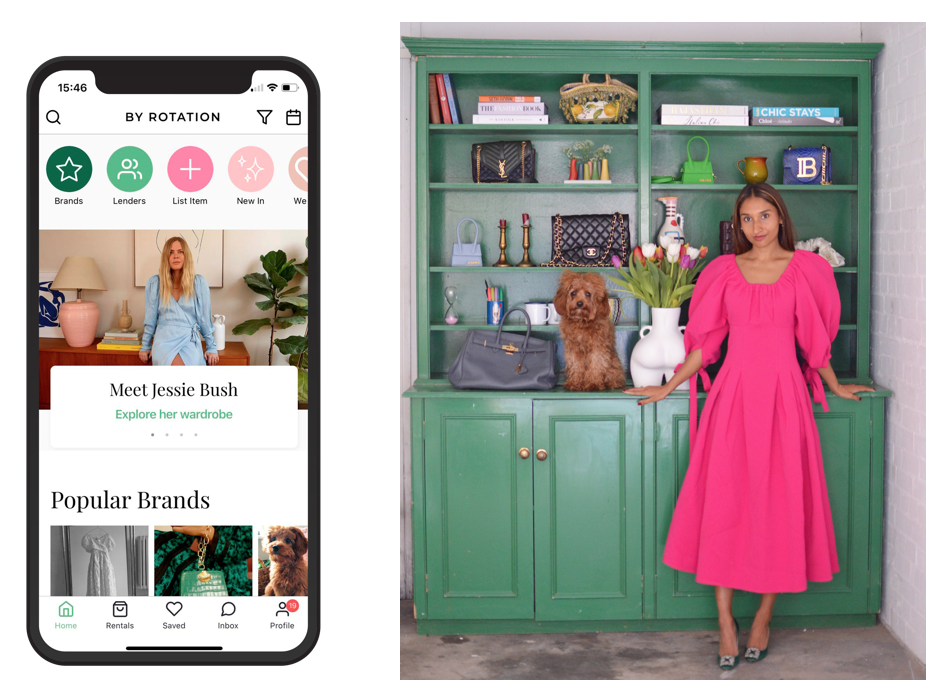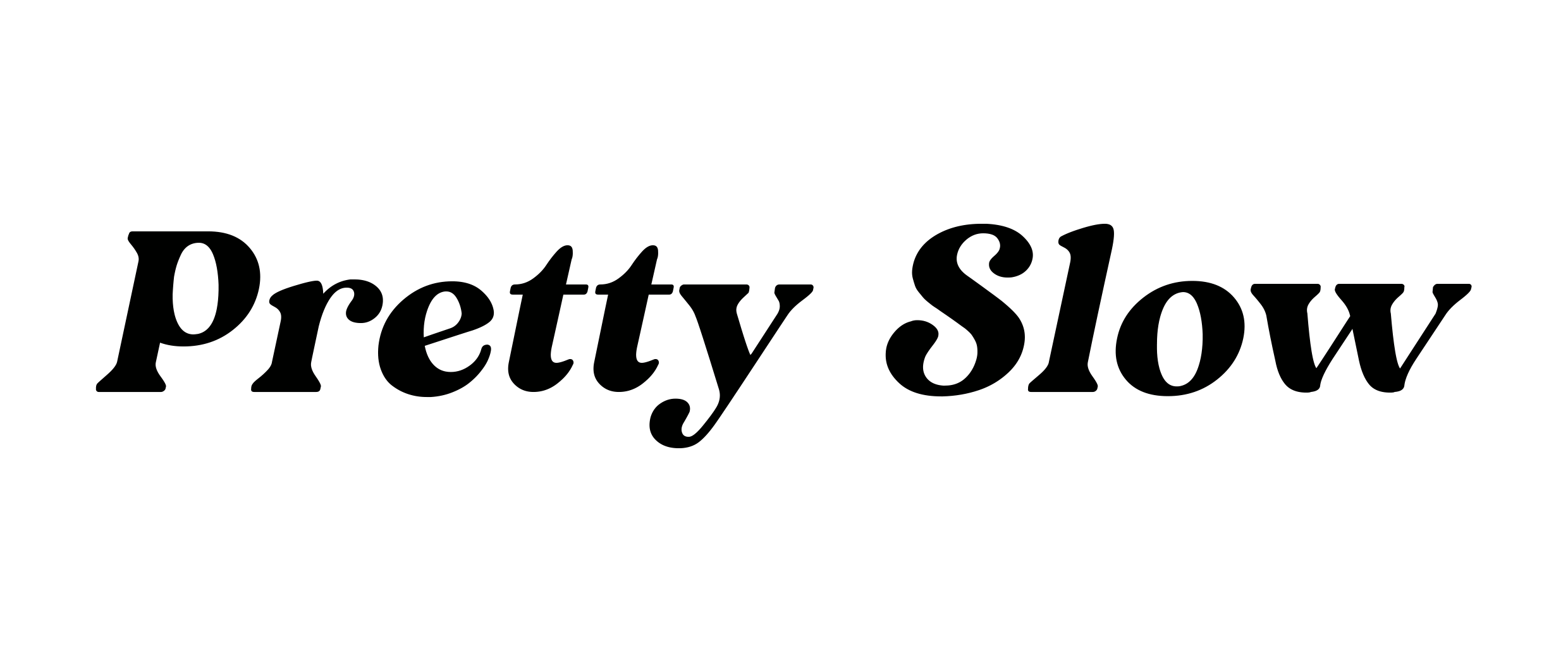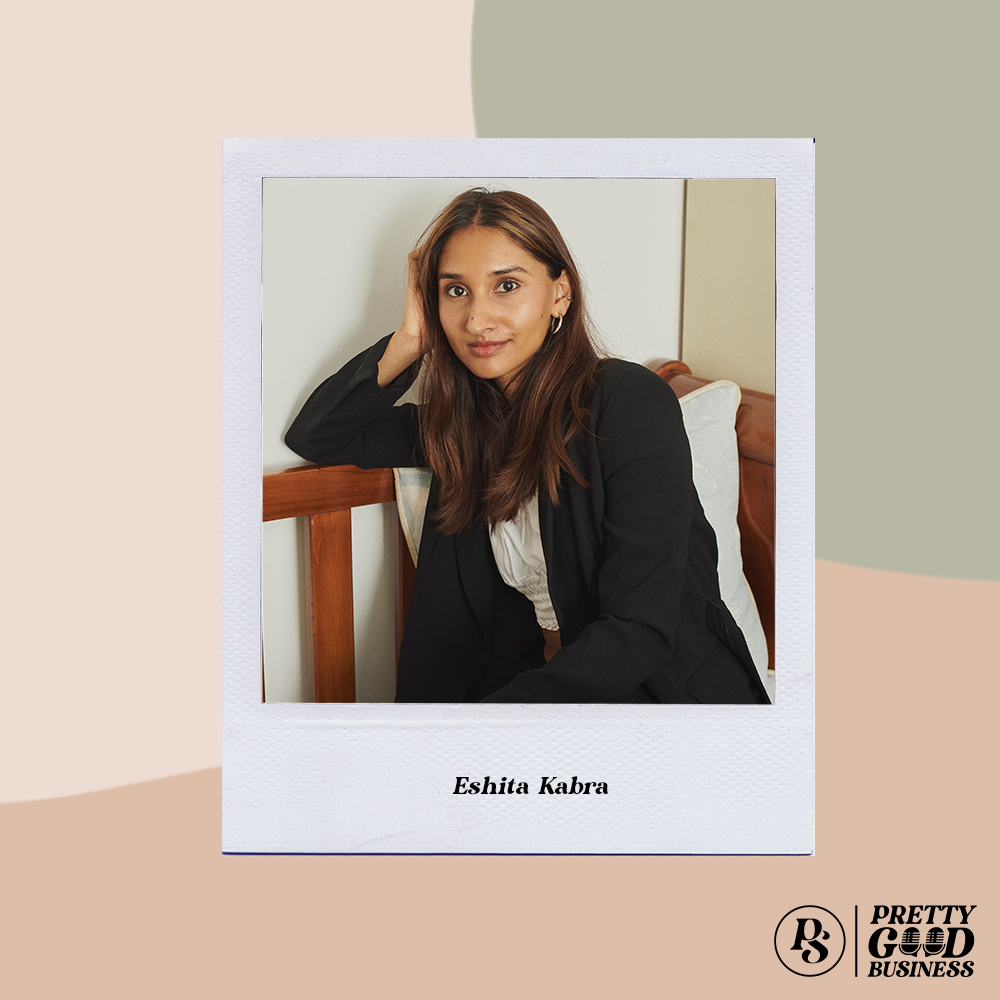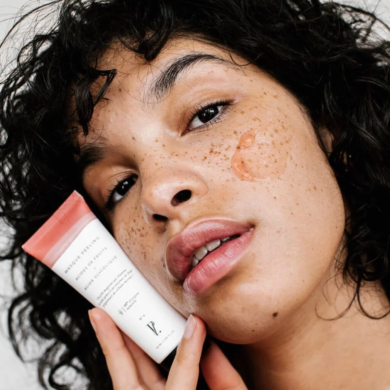By Rotation’s founder, Eshita Kabra-Davies, talks about the importance of building a community around your brand and shares the best business advice she was given.
You have probably heard about By Rotation by now. The first peer-to-peer fashion rental app in the world has taken Britain by storm and counts influencers, tv personalities and even members of the Royal Family among its users. It’s only the beginning for this young start-up, but its founder is on a mission to make renting (and lending) between users the new normal in and outside the UK.
We chatted to Eshita Kabra, founder of By Rotation, in one episode of our podcast, Pretty Good Business. In the episode, she talks about the importance of building a community around your brand, always sticking to your values over profit and how minimising your risks is a necessity for a start-up.
Could you tell us more about By Rotation?
By Rotation is the world’s first social fashion rental app. We’re very similar to Airbnb, but for designer fashion. The goal is to get people to share what they already own with each other and therefore do good for the planet, their wallet and their wardrobe at the same time.
The big difference between By Rotation and all the other renting platforms is that yours is peer-to-peer. Can you tell us why you decided to go for this different approach to rentals?
I’ve got an older sister who lives in New York City, and she used to be an unlimited subscriber of Rent the Runway, which is the most well-known fashion rental company in the world. What was shocking to me when I tried it out while visiting her was that there was no care whatsoever for what people were renting. It was all about accessing designer fashion for cheap. It was all about efficiency, very little about community and sustainability.
What I wanted to do was to be able to create a community of people who could share items that they already owned with each other. I wanted to make it very different and make it more about sustainability and community instead of running the world’s largest dry cleaning facilities, which is what Rent the Runway is. They’re all about dry cleaning and shipping, and I don’t find any of these practices to be sustainable. If anything, they’re promoting consumerism even more.
You also have a ‘special edit’ of clothes from well-known people, right?
Yes, we have a studio edit that features a few well-known celebrities, such as the tv personality Stacey Dooley or royals like Lady Amelia Windsor. These are the kind of people we manage their wardrobes for, but it’s not something that we do for everyone. It’s not like Airbnb owns its own houses or apartments, right?
What pushed you to start By Rotation?
It came from a very first-world problem. I used to work at a hedge fund, so something utterly unrelated to fashion or even tech. I was planning for my honeymoon to my motherland, which is in Rajasthan, India, and I was looking at Instagram for inspiration, as you do! And besides where to eat, what to drink, where to stay, I was also trying to look at possible outfits. That’s when I started thinking about how the UK and Europe don’t have a fashion rental company that’s well known everywhere.
When I started scoping out the market and therefore trying out the competition, I realised that the problem was more about people not using things they already own. On my honeymoon, I noticed animals eating textile castaways in suburban hometowns, and these weren’t even the well-known landfills that we all know about outside metropolitan cities like Delhi. The place I am talking about was just like my hometown. I couldn’t help but feel guilty that I had bought new clothes for my honeymoon.
It’s what made me realise that fashion rental shouldn’t be just about access to designer fashion; it should be about using what you already own and sharing what you already own.
In a very pragmatic sense, it’s great because you are monetising your investment pieces and you are only buying higher quality when you buy something new because you can share them with others and make your money back. Of course, you can also access designer pieces at a fraction of the retail price. It’s another type of experience because you can see the girl that owns the dress you’re looking at, and this feeling of community is what makes the difference.
Where did you start when you decided you were going to start your business?
I just thought, okay, since it’s a community-driven business, and it is a marketplace at the end of the day, one of the main things you need to do is start working on demand and supply – and supply usually is the thing that needs to come first. We needed to have a platform, so we created a beta platform – very ugly, but very cost-effective.
It was a web-based platform, and we started getting friends and family to sign up. We got them to start listing the items on the web-based test platform, and we created a lot of user-generated content, which we still do now, and it works for us.
We started kicking things off on Instagram, which is a very cost-effective method to test whether your product is something that people want. Quickly enough, we started getting many users across the UK, and the press picked us up.
When did you go full-time on By Rotation?
I left my full-time career six months after we launched the beta platform because I saw the traction we were getting. That’s when I decided to invest in a good platform, which is now the app that you see: the world’s first social fashion rental app. I decided to quit the day that it was launched as the launch was covered by the Business of Fashion, Forbes and Vogue – which was incredible.
So how many users do you have now?
We have over 35,000 users across the UK. We predicted to reach over 200,000 users, but Covid got in the way. But we will start going out again, and I suspect that people will make sure that they dress up like they have never done before!

How did you pivot the business during the pandemic?
We are fortunate to be a digital-only business and completely peer-to-peer. We have no inventory, no stock. We’re not a capital-intensive business, and we are a startup that’s very lean and entirely self-funded. So we weren’t forced to do anything that was not in line with our company’s values. When you have investors, they might be pushing you to make rentals or sales even when it’s insensitive to do so because they need to meet their financial targets.
We spent all of the lockdown building the community. We engaged our community while we were on lockdown, and we grew our community by 170%.
And we also grew our listings – lenders listing their items on the app grew by over 150%. We now have over 5000 listings, which comes from building a community of conscious individuals who are interacting and engaging with the app, even if they don’t have to rent right away. So we kept our focus on these sorts of metrics like engagement, as opposed to financial revenues. We know there’s no reason to rent items right now – while Rent the Runway was pushing people to buy ball gowns for zoom meetings we decided not to do things like that because the point of By Rotation is to use what you need, as opposed to pushing you to rent silly stuff.
Do you have a standard that you want people to keep on the platform or could you lend any kind of brand?
In terms of listing items: anyone can list items, as long as they belong to contemporary and high-end brands, we don’t want to push high-street and fast-fashion on the app. So we don’t allow those price points. In terms of renting, you can rent dresses for as little as £5 a day.
What did you learn since you started By Rotation?
I would say resilience has been vital. This time is tough for a small company – we don’t have the same budgets as LVMH, Karing or Inditex and we’re fortunate that despite being self-funded, we’re still staying afloat. So resilience is everything and staying true to your core values and not being distracted when it is easy to be distracted.
For now, the app is only available in the UK, are you planning on expanding?
The intention is to go global. We are the world’s first social fashion rental app, and there’s no reason why we would want to keep it only in the UK. We think there’s a lot of value in other countries, European countries. People ask us every day if we are available abroad.
Do you think that people are embracing sustainability more after 2020?
I think so. We’ve all been stuck at home, and some of the people who live in metropolitan cities like London tend to have relatively small flats. We’ve been staring at our wardrobes and all the things that we’ve amassed over the years, and realise that we don’t need that much.
Do you have any project or achievement or anything that you’ve done with By Rotation that you’re proud of?
I’m very proud of how much we’ve grown since we’ve launched as a self-funded fashion rental platform out there. And we’ve got a wide variety of people in our community, ranging from students, professors, bankers, lawyers, homemakers, celebrities, fashion it girls and even royals. It’s nice to see the spectrum of rotators, as we call them on our app, and that they are all on the same wavelength and have the same values. We all want to be eco-conscious, while also enjoying, new (even though it’s not new) fashion.
Do you have anything planned that you’re looking forward to?
Something exciting is going to happen in 2021, but I can’t give too much away. But, it’s something focused on community, sustainability, technology and diversity. And we’ll continue our mission of making fashion consumption more circular, trying to get people to consume less fast fashion. For me, fast-fashion companies are our primary competitors.
Do you feel a sense of community when you talk to people that use the app?
I’m biased, but we get a lot of great feedback from people who have used the app, both as lenders and renters. They always say that it’s not just about exchanging clothes – it’s nice that you can chat with someone and ask them things like: ‘do you think this dress would be too long for me because I’m shorter than you?’. People are giving each other styling tips; people are following each other on the app. Every time someone whose style you love went shopping, and they listed a new item, you get an alert, and you feel like, ‘my style match on the app has gone shopping, I can borrow something new’.
Compared to your previous career, do you feel happier going to work every day?
I feel that what I’m doing now, in terms of my work, it’s driving change at its grassroots, so I love it. But it’s not something that allows you to sleep much – you never stop working. I do feel like I’ve never worked this hard in my life.
Do you have one piece of advice for business owners or someone who wants to start a business? Is there anything you wish you knew before you started By Rotation?
My dad, an entrepreneur himself, told me that you’re never going to be the same person you are since you’ve started your business, which is true. Take that as a positive or a negative, but just remember, things will not be the same, and you will not be the same.
The other more practical advice that he gave me is that money saved is money earned. And that’s something that I find very important. I subscribe to the lean startup principles, so we do have a very lean way of working and I think that worked out pretty well for us, especially during the lockdown.


